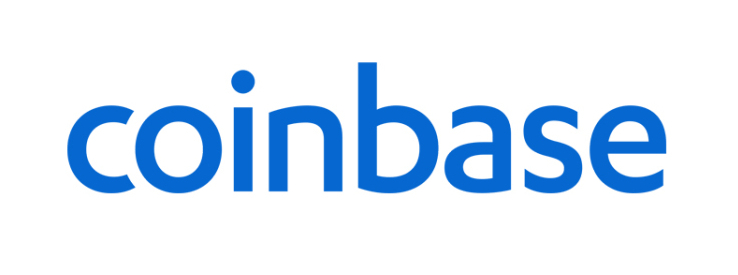
If you want to earn passive income with cryptocurrency, staking is one of the most popular tools you have at your disposal.
With staking, you can generate rewards by putting your crypto to work as consensus mechanisms for different blockchains. This provides a hands-off way to earn with your digital assets, and we’ve seen crypto staking yields reach 100% APY or even more depending on the coin.
However, figuring out how to use different DeFi staking pools and platforms can be intimidating. This is why many investors stick with custodial and non-custodial staking platforms that handle all of the technical work behind the scenes.
So, if you’re ready to begin staking, the following cryptocurrency staking platforms are some of our very favorites.
The Best Crypto Staking Providers
If you're looking for the top staking platforms out there, you're in luck. We've compiled a list of eight of our favorite platforms, with each one catering to a certain group of cryptocurrency investors:
The Best Crypto Staking Providers | |
|---|---|
Company | Best For |
Binance | Overall Staking |
YieldFlow | DeFi Fans |
Allnodes | Staking Variety |
Crypto.com | Crypto Rewards Program |
Cake DeFi (Bake) | Long-Term Staking |
KuCoin | Staking & Investing Products |
MyContainer | Non-Custodial Staking |
Coinbase | Beginners |
1. Binance

As the largest cryptocurrency exchange in the world, Binance is unsurprisingly one of the best places to stake crypto out there.
With Binance’s DeFi staking feature, you can currently stake 15 different crypto tokens. Some of the more popular options include AAVE, Convex, Ethereum, Litecoin, USDT, and Binance’s own tokens BUSD and BNB.
Staking rates range from 0.18% for Bitcoin all the way to 19.8% if you stake Convex. And some tokens allow for flexible lock-in periods while others require locking in your tokens for 30, 60, or 120-days.
Ultimately, Binance isn’t a staking-first platform. But if you’re new to crypto and are dipping your toes into staking, it makes sense to do it with the world’s leading exchange to keep things simple.
2. YieldFlow

YieldFlow is another popular platform that lets you earn passive rewards with crypto lending, liquidity pools, and staking.
The platform is also very simple to use. All you have to do is connect your crypto wallet, select the asset(s) you want to generate yield with, and then select your method of yield farming. From there, smart contracts and YieldFlow handle everything else.
You can currently stake four different tokens: AAVE, Fantom, Polygon, and The Sandbox. APY ranges from 4.5% to 10.87%, but the platform supports 20+ tokens across all of its yield generating options. And you can choose different lock-up periods to potentially increase yields.
It’s also worth noting that YieldFlow doesn’t follow Know Your Customer (KYC) requirements since it doesn’t deal with fiat and is decentralized.
3. Allnodes

Allnodes is a non-custodial platform that specializes in staking rewards. And with support for over 70 tokens and protocols, it’s one of the more robust staking platforms out there.
The “non-custodial” part is also important since with Allnodes, you maintain control over your crypto and use your own wallet. In comparison, centralized staking platforms and major exchanges require depositing your crypto on-platform to earn.
Additionally, Allnodes has very competitive staking rates. Some tokens pay in the 15% to 20% APY range or even higher, especially with more obscure altcoins. And you can still earn excellent rates with major cryptos like Ethereum, Polkadot, and Solana. Allnodes also displays each token’s market cap to help you identify the major and minor ones in the space.
4. Crypto.com

Crypto.com is another leading exchange that has over 80 million users from around the world. And, like Binance, it’s also a reputable staking platform you can use to put your digital assets to work.
At the time of writing, Crypto.com lets you stake over 20 cryptocurrencies and stablecoins, including Algorand, Bitcoin, Cosmos, Ethereum, Solana, USDC, and CRO, which is the platform’s native token.
Staking rewards can reach up to 12.5% with tokens like Polkadot. How much you earn depends on the lock-up period you select and the token you’re using, but rates are fairly competitive overall.
Plus, Crypto.com also lets you earn additional rewards with its crypto Visa card, like crypto cash-back and discounts to partners like Spotify and Netflix. You can also earn boosted staking rates if you become a Private Member, which requires holding a certain amount of Cro tokens in your wallet to support the exchange.
5. Cake DeFi (Bake.io)

Another popular cryptocurrency staking platform you can use is Cake DeFi, a Singapore-based company that launched in 2019.
Like YieldFlow, Cake DeFi offers several ways to generate yield, including liquidity mining, yield vault deposits, and staking rewards. You can currently stake five tokens, including: Dash, DeFiChain, Ethereum, Polygon, and Solana.
Staking rates range from 4.3% to 10.25%, which is competitive with other major staking platforms. And Cake DeFi has one unique feature, its Freezer rewards, which let you lock up tokens for up to 10 years in either staking or liquidity mining to earn double the rewards.
Personally, I wouldn’t feel confident enough with any cryptocurrency platform to lock-up my tokens for a decade. But the fact you can boost your yields with some amount of commitment is a plus.
6. KuCoin

KuCoin is another global cryptocurrency exchange that makes it easy to buy and sell digital assets. And, like its competitors, KuCoin has gotten into the staking world to let its customers generate yield.
At the time of writing, you can stake dozens of tokens with KuCoin, so it’s much more robust than exchanges like Binance and Crypto.com. Notable tokens you can stake include Bitcoin, Dogecoin, Ethereum, Filecoin, Kusama, Solana, Tezos, plus USDC and USDT.
If you want to stake a variety of altcoins and even meme coins, KuCoin is one of the best platforms you can use. And I like that many tokens have flexible staking periods, while others have specific lock-in periods, so you have some variety.
KuCoin also has numerous other earning options, including crypto lending and a mining pool. Plus, its KuCoin Wealth product lets you invest in “innovative structured products” that are essentially baskets of crypto assets and options, to try and generate returns. There’s really no shortage of earning options with this exchange, although like any staking platform, performance is never guaranteed.
7. MyContainer

MyContainer is another leading staking platform, and it’s an excellent choice if you want to stake from your own wallet rather than using a custodial solution.
Like Allnodes, MyContainer lets you use smart contracts to stake right from your own crypto wallet with its “Cold Staking” feature. The platform supports dozens of tokens, including Avalanche, Fuse, Polygon, and VLX. You can also use its regular staking feature to stake more tokens like BNB, Cosmos, and Ethereum.
Certain altcoins can pay 20% to 30% or more, so there are some lucrative staking options. However, more popular tokens, like Polkadot, aren’t quite as competitive as some of the other staking platforms on this list.
That said, MyContainer offers numerous other ways to earn. For example, you can begin mining with the platform and also find airdrops to participate in. There’s also a cashback option you can use that pays you with crypto for shopping at 2,000+ brand partners.
8. Coinbase

One final crypto staking platform you can consider using is Coinbase. And this is a particularly good option if you’re completely new to cryptocurrencies and want to stick with a beginner-friendly exchange.
Coinbase Earn is Coinbase’s staking feature that lets you earn up to 10% APY with your crypto. It currently supports 90+ assets, which is a significant increase from when Coinbase Earn first launched.
You can stake major tokens like Avalanche, Ethereum, Cardano, Tron, Solana, as well as dozens of lesser-known altcoins. And Coinbase even has a unique “Learn” feature that pays you with small amounts of cryptocurrencies for completing educational modules. So, you can learn about crypto, earn free tokens, and then stake them.
Factors To Consider When Choosing A Staking Platform
When picking our favorite staking platforms, some of the main factors we considered include:
- Ease-Of-Use: The best staking websites and exchanges make it easy to get started without any technical knowledge.
- Supported Tokens: Support for various altcoins is also worth considering if you’re not just staking ETH or major tokens.
- Staking Rates: Of course, the yield you generate should be one of the main factors you consider, alongside potential lock-up periods.
- Platform History: It can be worth going for lower yields if it means sticking with a reputable platform. As mentioned, numerous staking companies and exchanges have gone bust in the last few years, so diversification and risk management are important.
What Are Popular Cryptocurrencies To Stake?
Some of the most popular cryptocurrency tokens to stake include:
- AAVE
- Algorand
- Avalanche
- Cardano
- Cosmos
- Ethereum
- Polkadot
- Polygon
- Solana
- Tezos
- USDC
- USDT
Staking native tokens, like BNB or Crypto.com’s CRO, is also popular. Generally, sticking with major ERC-20 tokens on the Ethereum blockchain is the most common staking strategy since these tokens rely on Proof-of-Stake, not Proof-of-Work.
Is Crypto Staking Safe?
Cryptocurrency staking is safe in theory since you’re simply using your tokens to help validate blockchain transactions in exchange for rewards. However, staking platforms can have certain risks.
For starters, if you use a custodial platform, you’re not the one holding your tokens. This means the staking platform in question can steal your tokens if they become insolvent or run a shady operation,
Lock-up periods are also a risk since you reduce your own liquidity and ability to sell if the market takes a beating. And, issues like slashing, which involves losing some of your staked tokens if the pool you’re in does anything against the blockchain’s rules, can also be risky with non-reputable platforms.
You also potentially have the risk of impermanent loss.
Pros & Cons
Pros:
Cons:
The Bottom Line
Earning passive income with crypto is one of the most exciting elements of DeFi that we’ve seen over the last few years. But like anything in life, a lot of smart staking follows the adage “if it’s too good to be true, it probably is.”
You can find excellent yields with reputable staking platforms that outperform traditional savings accounts or other investments. However, you need to remain diversified and consider liquidity. And always be cautious if you use custodial options since if it’s not your private keys, it’s not your crypto.

Tom Blake is a personal finance writer with a passion for making money online, cryptocurrency and NFTs, investing, and the gig economy.
